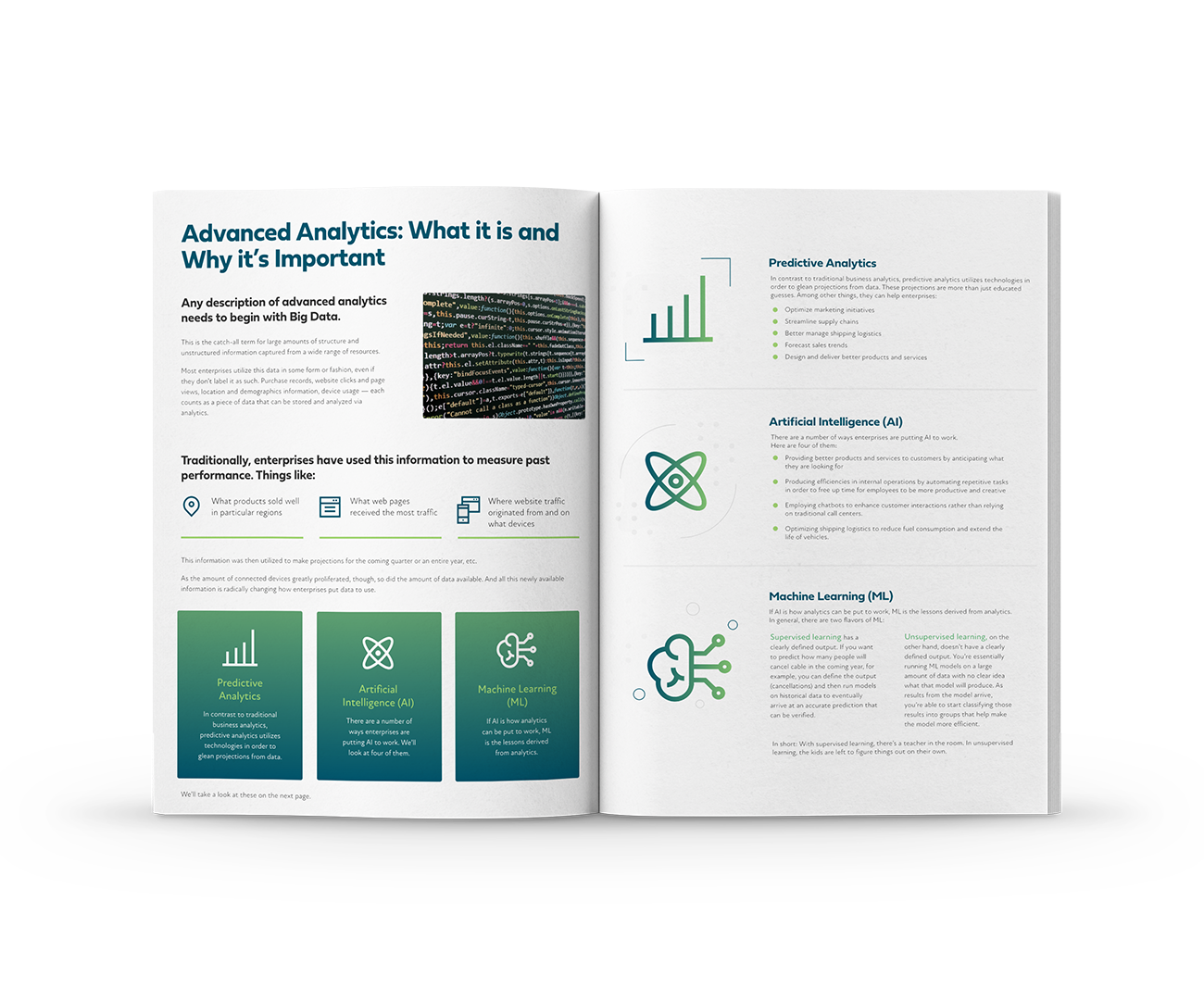Matt Francis (00:05):
Welcome. Today's topic is Getting Structure from the Unstructured. We'll be covering the benefits that organizations can realize when they are able to extract insights from their unstructured data sets. We'll talk about some of the challenges around managing all of this data, and how the Dell EMC PowerScale system can provide a platform to help address some of these challenges. Additionally, we'll talk about how you can partner with Redapt, not only for the deployment of the platform, but also for all of the processes and tool sets necessary to extract the insights that drive true business value.
My name is Matt Francis. I'm a director of our Solutions Architects here at Redapt. I've been in the IT industry for the past 22 years, and I've been focusing on storage systems and platforms for the past decade.
Let's talk about how organizations are realizing the benefits of their unstructured data. We all know that data is the new oil. Advanced analytics are the key to creating a competitive edge in today's industries. There are several emerging technologies, like artificial intelligence and machine learning, that help us make smarter decisions by analyzing what our customers want and need. This in turn helps us create new products and services specifically targeted to them. We can even identify potential issues before they occur. There are several different use cases across a wide variety of verticals. For the financial sector, automated fraud detection systems have become commonplace. I know I've had several cases where the bank reached out to me in real time as soon as I swiped my credit card, to confirm what they see as unusual spending activity.
Sales and marketing organizations rely on AI and ML to create omnichannel marketing experiences with the ability to personalize messages to individual consumers, create recommendation engines to make targeted product offers, and utilize chatbots to understand and respond with natural language to help streamline support. Even creating sentiment analysis systems to make sure their customer support provides the value their customers demand.
In healthcare we see AI and ML radically changing how cures to our most pressing illnesses are discovered, and how image recognition technologies are aiding and making diagnoses. In the manufacturing space, AI and ML are being used for predictive failure analysis, to make sure all the machinery stays online, preventing costly downtime and failures. Additionally, they use anomaly detection systems to ensure the products being produced are of the highest quality standards. Finally, in the automotive space, we see AI and ML in autonomous vehicles that are actually able to understand the environment around them and adapt to it.
There are so many different use cases for these technologies and being able to adopt them is going to be the key differentiator between you and your competitors. What's required, in order to do this, is a vast amount of data. Any description of advanced analytics needs to start with the catch-all term, big data. Large amounts of information which can be captured from a wide range of resources. Most enterprises are now utilizing this data in some form or fashion, even if they don't label it as big data. Whether it be purchase records, website clicks, page views, geographic location, demographic information, or device usage, each of these counts as a piece of information that needs to be stored, refined, and analyzed. With all of this data, challenges arise around the ability to be able to cost-effectively and securely manage it.
Unstructured data never stops. Organizations these days are struggling with a data deluge. There are three Vs that can describe the problem with data. The first V is volume. The sheer size of the data sets these days often outpace the legacy storage systems organizations have access to. This often forces them to choose which data they keep and what to discard. The second V is velocity. We're seeing more data created at a faster pace than we've ever seen in the history of computing. Data used to all be human generated, but now we're seeing an exponential growth of data being generated by machines. This poses a major challenge in attempting to capture all of it.
The final V is variety. We're seeing everything from social media feeds to video, audio platforms, and now all this sensor information. Whether this be log files and telemetry stats from a data center, a fitness band on your wrist, or even a cell phone in your pocket and some now for refrigerators. All of these devices are constantly generating information that needs to be stored, organized, and then analyzed. With all of these different data sources, organizations are often forced to create silos to store it. This limits their ability to have a single view of all of the different types of data, which is truly necessary to deliver the most valuable insights.
With all of this unstructured data, organizations are also struggling with security and proper governance. They struggle with having a comprehensive visibility to all the different data sets and who may have access to it. They often don't even understand where the data is. This is often created because we have these data silos and organizations that are forced to put data into individual buckets, depending on the application type or the protocol necessary to store it. With all of these different systems, properly managing access to the data sets can be extremely challenging.
This is where the Dell EMC PowerScale system fits in, as it helps us solve some of these challenges. PowerScale was a radically new design in the storage industry when it came out. It allows organizations to start with small data sets and seamlessly grow to petabytes in scale. As a true scale-out system, it has the ability not only to grow in capacity, but also the performance that is required to keep up with the velocity of modern data sources. It offers the flexibility needed to have high-speed storage for the most demanding analytics application, while also providing cost optimized, archival class storage. All of this inside of a single name space, so that no single piece of data has to be left behind. This is really important in the creation of ML models, as the ability to train on the largest data sets possible will yield the richest results.
PowerScale also excels in its ability to provide all the applications that need it with access to it, through multi-protocol support. Whether you're ingesting a file CIFs and you need to be able to analyze it with an application that uses NFS, or even S3 object protocol, the system can provide access to it. This is also very different for the different types of analytic systems that need to use the same data sets. You can utilize all this without having to move the data around, which can be painful at best. PowerScale also addresses the challenges of knowing what data you have, where it is, and how to plan for its future. This is with two different applications called CloudIQ and DataIQ.
CloudIQ provides infrastructure insights. It actually utilizes ML technologies and predictive analytics to help reduce risks with proactive health notifications and recommendations. It can help you plan smarter by giving you capacity projections and anomaly detection. DataIQ adds insights into your data usage. This is not only for the data stored on the PowerScale, but also works across third party storage, and even cloud storage to provide you with a comprehensive view of all of your data. You can conduct intelligent data analysis, manager storage costs, rapidly locate files, and accurately report on the uses of storage infrastructure. You can even empower users to move data around on demand. PowerScale also enables hybrid and multi-cloud strategy. Many times users find it most cost effective to store as much data onsite as possible, and don't want to have their data held hostage by the ever-growing cost of cloud providers, which help trap data with egress causes.
For those of you who can remember the roach motel commercials in the eighties, there's a new saying with cloud that, “When data goes in, it never comes out.” But the clouds do have a great benefit of having a lot of advanced analytic tool sets available to them. While all the clouds seem to have similar offerings, there are differences in both their capabilities and the cost each of them provides. One of the greatest advancements with PowerScale is that it allows you to have your data set outside the major clouds, while providing a high-speed connection into all of them. This hybrid cloud strategy gives you the flexibility to control your data, but still utilize the best analytic tool sets from each of the major cloud providers. All this with avoiding the costly lift and shifts of your data.
Finally, let's talk about how you can partner with Redapt to leverage your unstructured data. As a long-standing Dell EMC partner, we have a history of helping customers in the selection, sizing, deployment, and maintenance of their systems. In addition to working with the storage platform, we're most excited to help our customers with the broader scope of their digital transformation initiatives. A key part of this is our dedicated advanced analytics practice, which offers a wide variety of consulting and professional services. One offer customers early in their journey find extremely valuable, is a data real estate assessment, which not only helps you understand your data, but, more importantly, the value it could provide your organization. We have extensive experience in helping customers extract value from their data platforms by helping them create custom reporting and BI dashboards, bringing new life to traditional business intelligence, utilizing the latest in data visualization, forecasting and modeling tools, and ultimately allowing you to harness intelligent data to make accurate, impactful business decisions.
Additionally, we have prepackaged ML jumpstart services, which implement an ML platform, as well as providing you access to data scientists to help craft and deploy your first ML models. We will work with you to identify an initial proof of concept project for AI and ML. We assist you with creating your models and moving them from development into production. And, we will help guide you as your ML initiative scales. This allows you to accelerate your ML initiatives, while avoiding a lot of the common pitfalls, and it allows you to confidently move from proof of concept to production in a timely fashion. Ultimately, this reduces the time to value, and lays the foundation for you sharpening your competitive edge.
Now I'd like to thank you for watching. To learn more, please reach out through our website, at redapt.com/contact.














